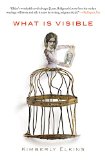Summary | Excerpt | Reviews | Beyond the book | Read-Alikes | Genres & Themes | Author Bio

A Hearing Boy, His Deaf Parents, and the Language of Love
by Myron UhlbergBy turns heart-tugging and hilarious, Myron Uhlberg’s memoir tells the story of growing up as the hearing son of deaf parents—and his life in a world that he found unaccountably beautiful, even as he longed to escape it.
“Does sound have rhythm?” my father asked. “Does it rise and fall like the ocean? Does it come and go like the wind?”
Such were the kinds of questions that Myron Uhlberg’s deaf father asked him from earliest childhood, in his eternal quest to decipher, and to understand, the elusive nature of sound. Quite a challenge for a young boy, and one of many he would face.
Uhlberg’s first language was American Sign Language, the first sign he learned: “I love you.” But his second language was spoken English—and no sooner did he learn it than he was called upon to act as his father’s ears and mouth in the stores and streets of the neighborhood beyond their silent apartment in Brooklyn.
Resentful as he sometimes was of the heavy burdens heaped on his small shoulders, he nonetheless adored his parents, who passed on to him their own passionate engagement with life. These two remarkable people married and had children at the absolute bottom of the Great Depression—an expression of extraordinary optimism, and typical of the joy and resilience they were able to summon at even the darkest of times.
From the beaches of Coney Island to Ebbets Field, where he watches his father’s hero Jackie Robinson play ball, from the branch library above the local Chinese restaurant where the odor of chow mein rose from the pages of the books he devoured to the hospital ward where he visits his polio-afflicted friend, this is a memoir filled with stories about growing up not just as the child of two deaf people but as a book-loving, mischief-making, tree-climbing kid during the remarkably eventful period that spanned the Depression, the War, and the early fifties.
Readers cannot help but be drawn into this poignant reminiscence, and long after the book's pages are shut, Myron Uhlberg and his family will continue to inspire...continued
Full Review
(605 words)
This review is available to non-members for a limited time. For full access,
become a member today.
(Reviewed by Beth Hemke Shapiro).
Hundreds of years of evolution have shaped American Sign Language (ASL), today the main sign language for deaf people in the U.S., parts of Canada and Mexico, and many other countries around the world. Derived in part from the personal hand signal repertoires of many deaf individuals, ASL has grown to become a fully functional language, a medium of higher education, and a central part of Deaf culture.
The deaf have always developed their own means of communicating through signals, long before any attempt was made to standardize these into a formal language. Nearly three hundred years ago, a spate of deaf births on Martha's Vineyard gave rise to a unique sign language on the island. One of the earliest attempts to extend beyond a small ...
This "beyond the book" feature is available to non-members for a limited time. Join today for full access.

If you liked Hands of My Father, try these:

by Andrew Leland
Published 2024
A witty, winning, and revelatory personal narrative of the author's transition from sightedness to blindness and his quest to learn about blindness as a rich culture all its own

by Kimberly Elkins
Published 2015
A vividly original literary novel based on the astounding true-life story of Laura Bridgman, the first deaf and blind person who learned language and blazed a trail for Helen Keller.
These are not books, lumps of lifeless paper, but minds alive on the shelves
Click Here to find out who said this, as well as discovering other famous literary quotes!